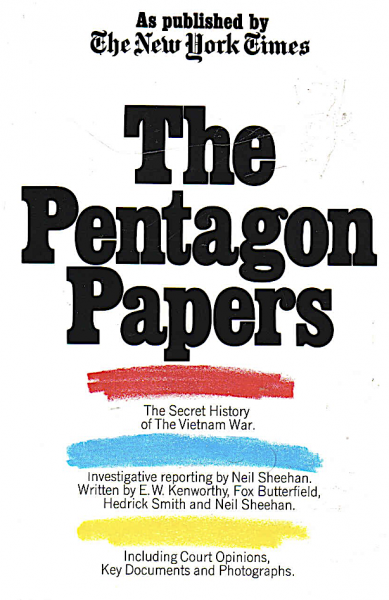Shown from left, New York Times reporter Neil Sheehan, Managing Editor A.M. Rosenthal and foreign news editor James L. Greenfield at the New York Times on May 1, 1972, after it was announced the paper won the Pulitzer Prize for public service for its publication of the Pentagon Papers.
He had obtained the Pentagon Papers, the Defense Department’s 7,000-page secret history of the Vietnam War, which revealed that the government had been lying to the American people about the brutal conflict since it began. It was the first mass leak of classified documents in modern American journalism, four decades before WikiLeaks and Edward Snowden.
But Sheehan had lied to his source, Daniel Ellsberg, a disillusioned former defense analyst turned whistleblower, to get the documents. He had secretly copied them after he had promised Ellsberg he wouldn’t.
Sheehan confessed to his editors that he had “Xeroxed the materials without permission and the source was unaware that he had done so,” according to a remarkable and previously unpublished 1971 legal memo obtained by The Intercept. When confronted by an anxious Times lawyer, Sheehan insisted that the Pentagon Papers “were not stolen, but copied,” according to the memo.
The long-buried memo contains Sheehan’s contemporaneous and confidential account of his relationship with Ellsberg, as well as Sheehan’s version of events inside the Times as it prepared to publish the Pentagon Papers. It offers an unprecedented, real-time depiction of Sheehan’s actions — including his phone call to Frankel and his admission to his editors that he had lied to his source.





